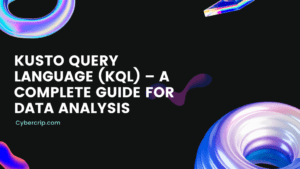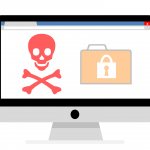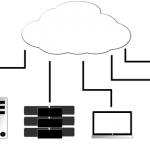What is an Ethical Hacker or Penetration Tester?
Penetration testers, also known as ethical hackers, are professionals who assess the security of networks, websites, and mobile apps by breaking into them. The process usually starts with a reconnaissance phase where the tester learns all about the target’s defenses. Then they move on to locating vulnerabilities or points of weakness that can be exploited.
The hacker then exploits these vulnerabilities to gain access to the system and demonstrate their skills. This is often done in a way that leaves no trace after they are done (i.e., without installing malware). After testing is complete, ethical hackers document what they did and how they did it so that their client can fix any vulnerabilities or take other necessary steps to improve network security based on their findings.
How To Become An Ethical Hacker With These 5 Specialized Areas Of Knowledge
Ethical Hackers are the White Hat, anti-malware specialists that are hired by companies to protect them against hackers, data breaches and cyber threats.
To be a successful Ethical Hacker, there are five specialized areas of knowledge that you have to master.
- The first area is programming knowledge which requires you to know at least one programming language fluently, preferably Python, Javascript, PHP, SQL.
- Secondly is networking which means knowledge of TCP/IP protocol suite and network architectures including routing protocols, topologies, hardware components, etc., and knowledge of how web applications work.
- Thirdly is understanding malware so being able to analyze malicious code samples is essential.
- Fourthly is experience with reverse engineering software and finally mastering the operating system’s (Unix/Linux and Windows) internals such as processes and threads so you can identify malicious behavior patterns.
Which Programing Languages Should Ethical Hacker Know?
- HTML – This language is used to write web pages. The HTML code is read by a browser and then “rendered” into text, images, animations, and other multimedia. HTML forms and fields with input can most come with vulnerabilities. If you know how to write and interpret HTML. This allows you to identify and exploit weaknesses in the code
- Javascript – JavaScript is a client-side scripting language, which means it executes on the client browser. JavaScript code is often used to save user input to the form fields, or modify their content. This can be done without reloading the page. JavaScript can also be used to access saved cookies and perform Cross-Site Scripting attacks etc.
- Python, Ruby, Bash, or Perl (Scripting Languages) – Digging into Python, Ruby, Bash or Perl can help you make automation tools and scripts. Having the knowledge to create these scripts & programs will allow you to customize existing tools.
- PHP – PHP is one of the most popular programming languages for developing web applications. It’s used to process HTML forms & perform other tasks. You could write a custom application in PHP that manipulates settings on a server, making it vulnerable to hacking.
- SQL – SQL is a language specifically designed to communicate with databases. SQL injection is a popular way of hacking websites by using SQL commands to bypass login algorithms that are outdated and avoid getting caught.
- C & C++ – C & C++ are programming languages that can come in handy when you need to write your own exploits, shellcodes, rootkits, or understanding existing ones.
Skills That Every Professional Ethical Hacking Job Requires
Every professional ethical hacking job requires you to have a variety of skills. To succeed in the field, you need to know how to find vulnerabilities and find ways of protecting against those vulnerabilities. and that’s what ultimately every employer wants.
With the skills outlined above, you can ensure that your company is adequately protected from cyber threats and nefarious individuals who would seek to do harm.
What Type Of Training Is Provided To Become An Ethical Hacker?
All Ethical Hackers go through extensive training on the basics of cybersecurity. From how to secure networks, to what the latest cyber threats are, this type of training will prepare you for any hacker situation.
This is because of the need for the ethical hacker to be aware of various systems and their vulnerabilities, as well as how they can overcome them. These hackers are critical to protecting data and detecting potential security failures before they become a problem.








